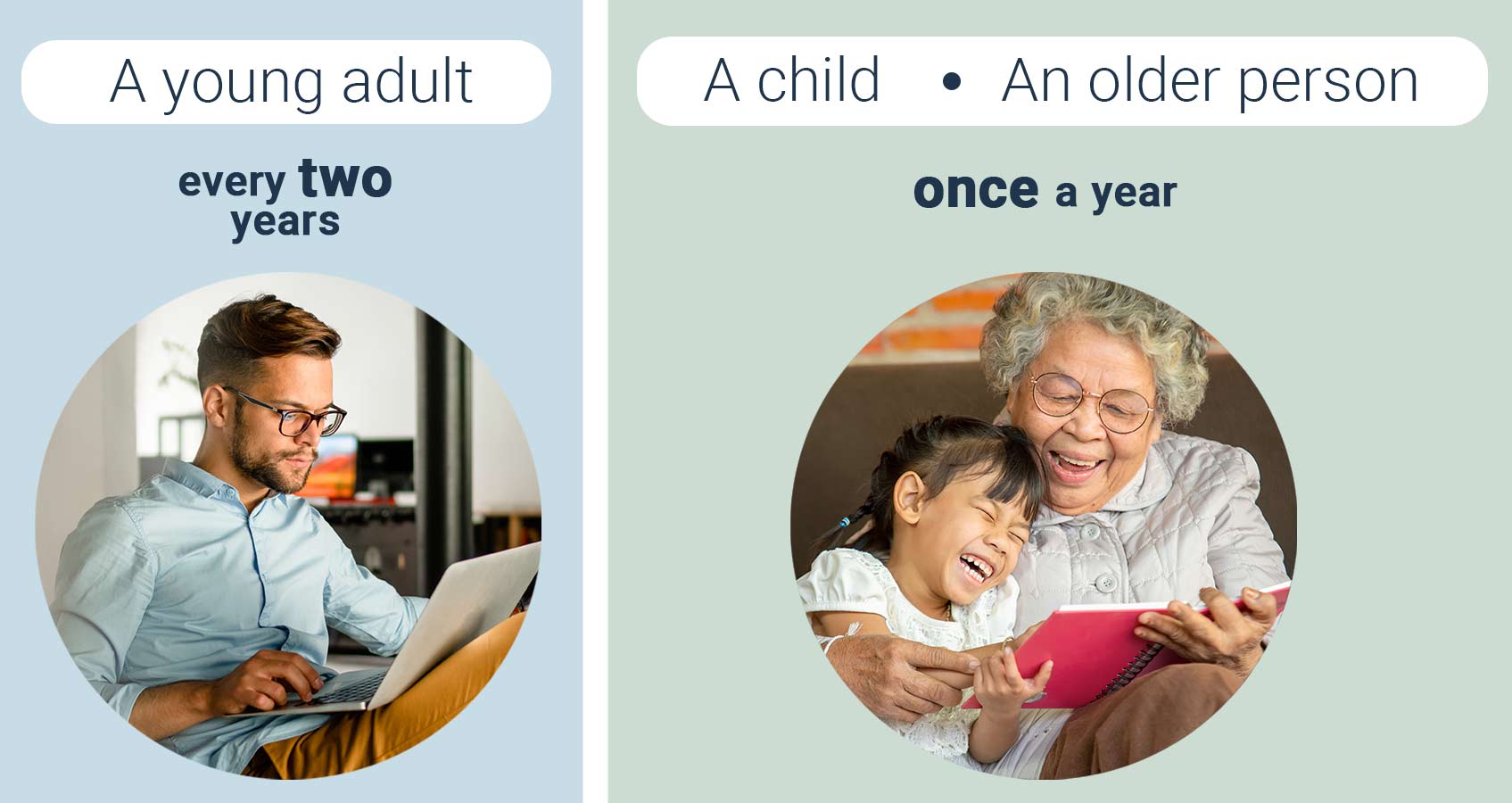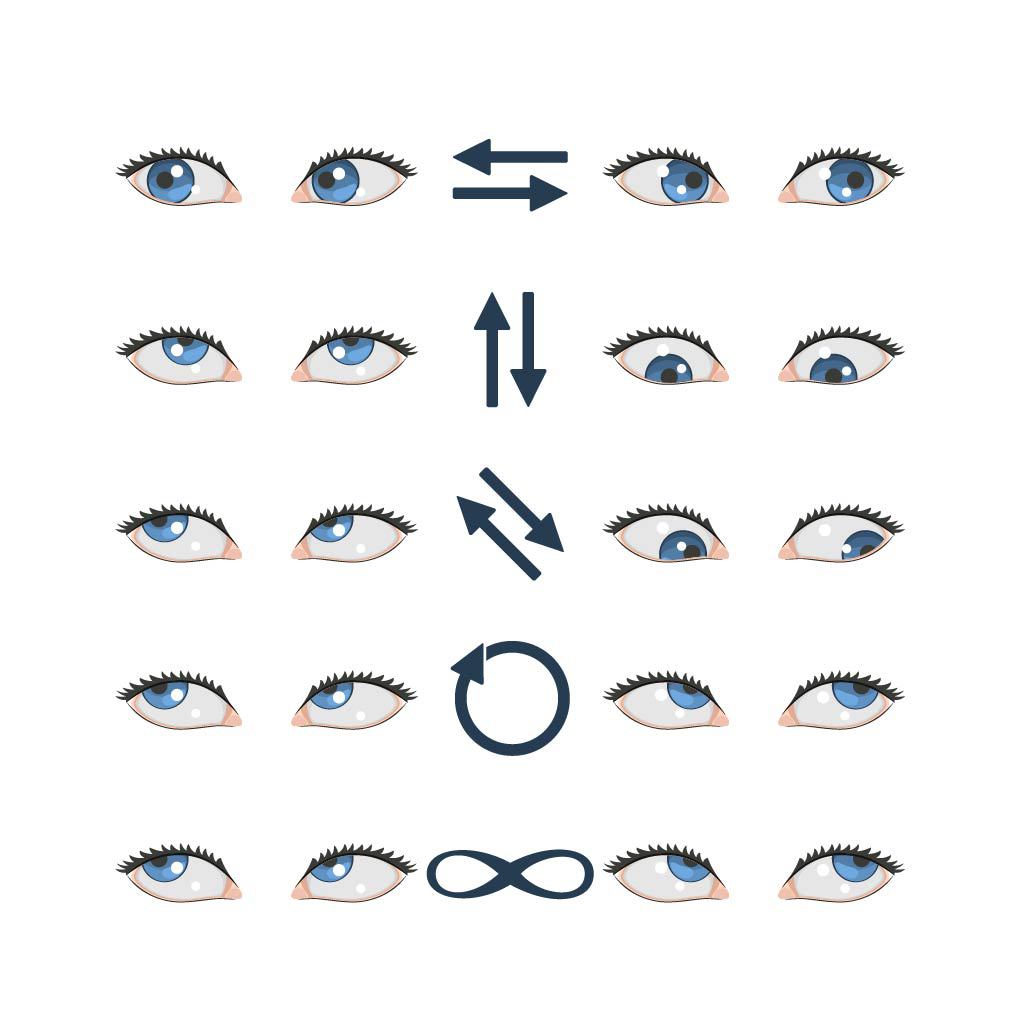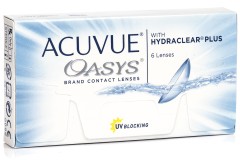5 simple ways to improve your eyesight

Here's a fact: your eyes work hard for you everyday! They are constantly processing tons and tons of images for us (especially in the digital era we live in), they allow us to recognise, read, admire, glance, glare, peruse, peep, stare... oh, sorry, we got a bit carried away there!
Essentially, our eyes are precious and we all should take good care of them. This very important task is a lifetime-long one, but this doesn't mean it should be difficult. The advice included in the following chapters will show you simple, yet effective ways to keep your eyes happy, and your eyesight in the best shape possible.
Learn our 5 best tips to improve your eyesight and keep your eyes healthy
After consulting with our eye specialists - and reminding you that your own eye care practitioner is always the best source for advice tailored to you - we are ready to present you 5 simple ways to improve your eyesight.
- Schedule regular eye checks
- Give your eyes a break from digital screens
- Try these eye exercises
- Eat your veggies & mantain a healthy lifestyle
- Protect your eyes from UV radiations
They are pretty easy to incorporate in your day-to-day routine, and definitely effective. Want to learn how? Keep reading!
Schedule regular eye checks
Our first advice is a very important one: If you wear glasses or contact lenses already, you know that having an updated prescription is fundamental. Although, even if your eyesight feels fine to you, we strongly recommend monitoring your eyes and vision regularly. A thorough eye test will not only determine whether your diopters are sufficient, but it can also be crucial in identifying any other causes of blurred vision, eye fatigue, diabetes and high blood pressure.
Are you wondering which is the correct frequency to schedule your eye checks?
- Young adults (20 to 40 years old) should have their eyes checked every two years.
- Children, adults and elders need yearly eye checks.

Give your eyes a break from digital screens
Do you ever mull over how much time you spend poring over digital screens? Based on a recent survey, it's been calculated that on average we spend at least 6 hours per day on digital screens, wether it be our computer while working or our smartphones, tablets and smart TVs during our free time. This means that our eyes are constantly pushed to focus and, in the long run, their muscles suffer.
When our screentime becomes excessive, the risk of eyestrain and eye fatigue increase significantly. Among the symptoms, we might experience headache, blurred vision, sore and dry eyes. Relieving them by taking short breaks is thus necessary.
To avoid eyestrain, dryness and blurred eyes, follow the '20-20-20' rule:
- take a 20-second break every 20 minutes by focusing your gaze at a point 20 feet (about 6 metres) away from the computer.
If you work regularly on a computer or if gaming is your passion, you might also try to wear blue light glasses. They are equipped with a special filter that blocks a percentage of the blue light emitted by our screens. Along with a healthy lifestyle and regular eye checks, these tinted lenses can provide a form of relief for your eyes. They also provide UV protection and enhance contrast and image clarity on digital screens, making your life easier.
The best solution to ease digital eyestrain, however, remains the simplest one: limiting and spacing out your screen time. You might find that this good habit can also help you to improve your sleep quality and your focus.
Try these eye exercises
Eye exercises or 'eye yoga' are quite popular nowadays. We explained in the previous chapter how digital devices changed our lifestyle. And since then, eyestrain is becoming a common issue for a lot of people. Find a bit of time for yourself (10-15 minutes are enough) and try these easy exercises. We promise: the relief will be immediate!
- Gently move your eyes from left to right. Repeat this movement three times.
- Move your eyes up to the ceiling, then slowly down to the floor. Repeat three times.
- Slowly and gently move your eyes up to the left, then slowly down to the right for three times.
- Repeat this movement, starting from the upper right and moving down to the left. Again, repeat three times.
- Trace a path resembling the figure 8 with your eyes.

But let's be clear: although it is proven that eye exercises can ease your eye muscles from tension and stress, they are not a miracle solution. Yes, they can help you find relief after a hard day of work or study, but they won't magically cure your visual empairments. Our suggestion, as always, is to follow your eye specialist recommendations, and use any visual aids according to your prescription.
There are, nevertheless, some proven benefits to it. According to a recent scientific research conducted by the Department of Optometry of the Sankara Academy of Vision, ocular yoga exercises reduce the eye fatigue symptoms score by increasing the efficiency of extraocular muscles. Hence, it could be considered as a therapeutic and nonpharmacologic intervention for reducing the eye fatigue and associated asthenopic symptoms.
In conclusion, exercising your eyes (like shown in the infographic below), you will not only train your eye muscles, but also improve the blood flow, the oxygenation and the natural production of tears. A very big result for such a little series of movements!
Eat your veggies & mantain a healthy lifestyle
Making healthier choices every day is a pretty good way to not only maintain your eyesight, but also to improve your quality of life. But since we are focussing on vision, let's start with a list of delicious superfoods that nourish your eyes as well as your body. Vitamins, fatty acids and antioxidants are the elixirs we are searching for if we want to improve our eye health naturally, according to numerous international studies.
Let's see where we can find them, and why they are important to keep your eyes healthy:
- Carotenoids, such as vitamin A (also known as retinol), beta-caroten, lutein and zeaxanthin help our eyes to develop a natural protection against UV radiation. Their intake reduces the risk of cataract and macular degeneration, as well as eye dryness. They can be found in carrots, corn, spinach, broccoli, bluberries, tomato, sweet potatoes, mangoes, pumpkins, eggs and milk.
- Vitamin B (especially B1, B2, B6, B12 and folic acid) support the proper functioning of the eye muscles and lowers the risk of degenerative eye diseases. You can find the B group vitamins in beans, eggs, spinach, leafy vegetables and cereals.
- Vitamin C is famously considered a "natural shield" against diseases and infections. Our eyes too can benefit from its immune system boosting qualities. Vitamin C not only prevents cataract, and age-related macular degeneration (or AMD), but it can also slow down visual acuity loss. The richest in vitamin C are: kiwi, citrus, berries, lettuce, tomato and pepper. They also contain bioflavonoids, other important helpers for an optimal eye health.
- Vitamin E has an antioxidant effect that also helps prevent AMD and eye stress; it strengthens our eye muscles and protects our eyesight. It can be found in almonds, avocadoes hazelnuts, soy, saffron, olives and olive oil, whole-grain cereals and spinach.
Don't forget to drink at least one and a half litres of water a day, take a walk outdoors whenever your schedule allows it and sleep at least eight hour every night.
Protect your eyes from UV radiations
Last, but certainly not least, it's one of our favourite topics: UV protection, all year round. This advice is extremely simple to follow: just wear your favourite pair of shades!
Just remember: not just any sunglasses will do. Cheap and non-certified sunglasses can actually damage your eyes more than the actual sunlight. Make sure to choose wisely, when it comes to your faithful sunny days companions: your sunglasses must be equipped with UV400 filter, meaning that they will be able to block 100% of UVA and UVB rays from entering the eye.
Improving your eyesight is pretty easy, isn't it? Let us know in the comment section if you followed our tips!








Comments